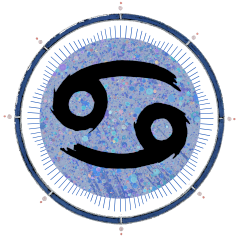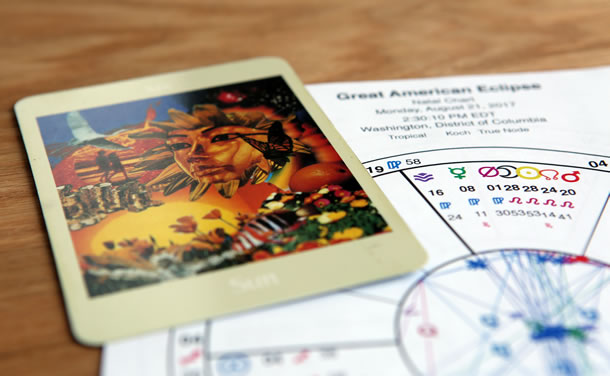
Dear Friend and Reader:
On Monday, Aug. 21, 2017, the Moon will pass in front of the Sun, blocking the Sun and casting a shadow over the Pacific Ocean. As the Moon moves and the Earth turns, the shadow will pass just south of Portland, Oregon, traveling southeast, reaching maximum intensity near Memphis, Tennessee, passing through South Carolina and then out into the Atlantic.
This is the first eclipse to touch both coasts of the United States since 1918, though that one had maximum intensity over the Pacific Ocean south of Alaska, not on land. The Aug. 21 event will be the first eclipse to make landfall exclusively in the United States dating back to 1776. In that sense, it’s an unprecedented event, arriving at an unprecedented time in U.S. history.
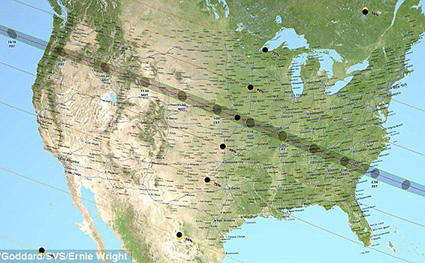
Everyone paying attention knows that our nation needs some kind of shift. We need healing. Some think it has to be political, others spiritual, others social and economic. There are many different notions regarding in what direction these changes need to go. That might be the one thing that all sides agree on: change is necessary.
In astrology, eclipses represent watershed events. They can arrive with sweeping changes, and represent before and after moments. This works personally, and it works collectively — and it’s especially true for the place where the individual and the collective intersect. Said another way, eclipses represent collective events that can have deep personal influence. They represent change. And with the shadow falling across the United States, change is imminent. It’s an open question what kind of change we get, and what kind we create.
Of course, it’s rare that anyone has the idea that “we can create change,” much less a concept of what that change might be. As is written in the Declaration of Independence, “All experience hath shewn that mankind are more disposed to suffer, while evils are sufferable than to right themselves by abolishing the forms to which they are accustomed.”
Said another way, people tend to put up with bullshit because it’s inconvenient, difficult or seemingly impossible to make any real changes. That idea is, of course, self-perpetuating, particularly as the problems get worse. And it leaves the business of change to people with agendas and advertising budgets. Their changes usually don’t work so well for you, unless you really think it’s a good idea to eat a cheeseburger between two slabs of fried chicken, wash it down with Diet Coke, then take diabetes and blood pressure drugs.
When you look at the problems United States society is facing, it’s easy to decide that there’s no solution. It’s not just that people can’t agree on the problem; rather, one person’s disaster is another person’s boon.

For one constituency, protecting women’s hard-won right to autonomy over their bodies is allegedly a direct affront to God (and let’s get back to killing Muslims and executing prisoners). For one constituency, providing social services is a moral obligation of society; for another, voting for leaders who cut off the voters’ own social services is something to celebrate and gloat over.
Sci-fi author Isaac Asimov got it right when he said in a 1980 Newsweek interview, “There is a cult of ignorance in the United States, and there always has been. The strain of anti-intellectualism has been a constant thread winding its way through our political and cultural life, nurtured by the false notion that democracy means that ‘my ignorance is just as good as your knowledge’.”
The cult of ignorance is currently camped out alongside the information superhighway, throwing beer bottles at passing vehicles. The ignorant now have a voice, and many with a very, very powerful voice have taken advantage of the ignorance and the divisions it’s caused.
When we add to that the destabilizing effect of electronic media, which has led to the idea that there’s no such thing as the truth and who cares anyway, we have a real problem on our hands — a problem that many think is merely theoretical and that few people can even see. Then we admit the ‘smart’ phone is ruining everything, as if it’s the most obvious thing in the world.
As the Aug. 21 eclipse approaches, the pressure is going to increase, and we’re likely to see even more fracturing and polarization in the political discussion. Pressure can induce madness, particularly in the weak, and in those who lack intellectual and spiritual grounding. It’s also essential to remember that information is moving at lightning speed, every day, all the time. So what are we looking at? What’s the nature of this watershed moment?
The Setup Happened in Late May
It may be a moment of total chaos: of the maelstrom of contemporary life whipping up into its wildest frenzy yet. It may be a moment of profound unity. The last time we had that was Sept. 12, 2001.
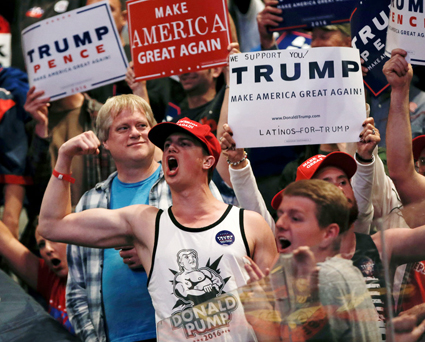
In terms of specifics, it’s important not to entirely conflate the nation with the federal government, though the two are functions of one another. Many things that affect the whole United States involve the government. Many problems come back to the government for solutions, which are not forthcoming.
For a couple of years now, the United States has been dealing with the Donald Trump problem. Of course, Trump is not the Trump problem — it only seems like he is. The underlying issue involves technological change, and many people feeling either totally confused, or left behind by the “new economy” of the internet. The technology problem manifests personally as well. All of our previously dependable cultural reference points seem to have dropped through the floor, and at the same time, so have many inner reference points, such as the concept of meaning.
It’s one thing to search for meaning and seem to not find it. It’s another thing entirely to decide that there’s no such thing as meaning and call the search off.
Here’s how Eric McLuhan, media philosopher and professor of English, describes the situation: “The body is everywhere assaulted by all of our new media, a state which has resulted in deep disorientation of intellect and destabilization of culture throughout the world. In the age of disembodied communication, the meaning and significance and experience of the body is utterly transformed and distorted.”
Saturday Night Live’s writers got it right when, commenting on recent government antics, they said, “Nothing matters. Absolutely nothing matters anymore.” McLuhan is describing the cause; SNL is describing the effect. Of course, different things matter as the times change. Yet the hyperbolic blasé attitude of society at this moment certainly is frustrating, particularly as so many of the blasé claim to care so very much. That’s probably just a game, since caring gives one a good image but is inconvenient, and not doing anything is so easy, and it doesn’t matter — as long as one seems to care somewhat. It would be more fun to hang out with pro-lifers. At least they actually give a shit.

That said, in May we started to see the chickens come home to roost in the narrative of the Trump administration. Between Trump firing FBI director James Comey to block the investigation of the Trump campaign’s ties to Russia, and the naming of a special counsel to investigate those ties, there were daily missteps of stunning proportion, nearly all of which look like part of a cover-up.
Let’s see, we learned that Trump tried to get Comey to back off of the investigation of Michael Flynn, the short-lived national security advisor; we learned that Trump knew Flynn was under federal investigation when he was nominated and sent before the Senate for confirmation; we learned that Jeff Sessions, the attorney general, had a role in the firing of Comey, even though he had allegedly recused himself from all matters involving Russia (because he lied to the Senate during his confirmation hearings about meetings with Russian officials); and on and on ad nauseam.
Here’s an interesting fact about the Aug. 21 eclipse: it comes within one degree of Donald Trump’s ascendant. The ascendant, possibly the most sensitive point in a natal horoscope, is the exact degree of the rising sign — in Trump’s case, the last degree of Leo. This eclipse happens in the next-to-last degree of Leo, so it’s going to have an effect on Trump and everyone connected to him.
The special counsel’s investigation is likely to be well underway by then, and so too are the inquiries in the House and Senate. To me it looks like the Trump administration is going to be on extremely shaky ground by August. And that means more change, more confusion, more chaos and more mystery about what happens next. The astrology looks like Trump finally explodes. Something, such as his own self-loathing (the other side of narcissism), might get him long before impeachment or indictment.
What the World Needs Now is Trust
This still doesn’t tell us where we, as individuals, fit into the picture. And as individuals, many, many people are in rough shape, unable to actually deal with the mounting pressures in their own lives.
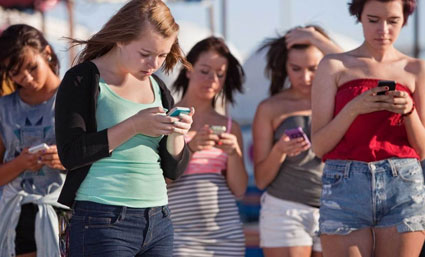
I recently gave up a storefront in uptown Kingston. On the window was inscribed a quote attributed to Anais Nin: “We don’t see things as they are. We see them as we are.” That said, here is what I’m noticing, which I think is considerably different from who I am.
One thing I’m noticing is many people avoiding eye contact in public. I’m noticing the ever-burgeoning rise of social phobia. I’m noticing that many people won’t do something unless they’re getting paid for it, which is another way of saying that the motive of doing things for their own sake is evaporating rapidly.
I’m noticing anger, particularly from women. They don’t talk about it much; you can see it on their faces, which often look like they’re cast in stone. Attempting to start a conversation is widely seen as an affront. I notice many young men walking around the streets with a vacuous expression in their eyes. I see many people avoiding one another; I notice many people who seem terrified to go off-script even for a moment, or to embark on anything without a supposedly guaranteed outcome.
I walk into a busy café and half of the people are typing into computers or other devices. This is just an outer representation of what seems to be a society whose members are growing increasingly socially crippled, and unable to have a conversation without panicking or getting offended.
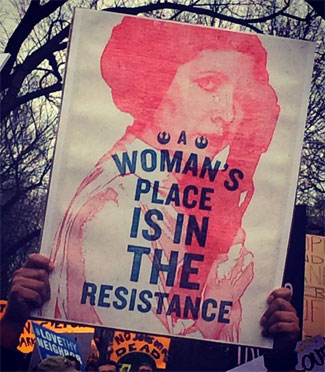
I hear, or hear of, many conversations that conflate attraction to another person with sexual objectification — or worse, with rape.
I hear talk of revolution and fostering change, without the meekest awareness that to do that, we have to get together and talk and listen to one another; to make any change at all, we need to be willing to work together — for no money, and no promise of success.
Underlying all of this is a profound lack of trust in one another, and in society, which must be rooted in people’s lack of trust in themselves, their perceptions and their assessments of people.
The United States is heading for a paradigm shift. Sooner or later, that will include the seemingly shocking discovery that we can’t trust politicians — which only seems to induce more cynicism, which is a form of radical distrust in existence.
This is a spiritual problem, and it’s a social problem. For a paradigm shift to be even vaguely helpful or meaningful, it must include trust. In order to trust one another enough to start the conversation, someone is going to need to take a risk.
I would, in that light, propose that it’s the people who have a spiritual life, who have some grounding, and who have found a basis for trusting themselves and trusting existence, that should take the first step, many times a day. It’s only the people who can see and hold awareness of this corner that we’ve painted ourselves into, or been unwittingly shoved into, who can plot a way out. If you cannot see a problem, you surely cannot solve it — so those who see the problem must be the ones who take the first steps.
One way or another, we must heal our damaged trust.
Your friendly neighborhood astrologer,




